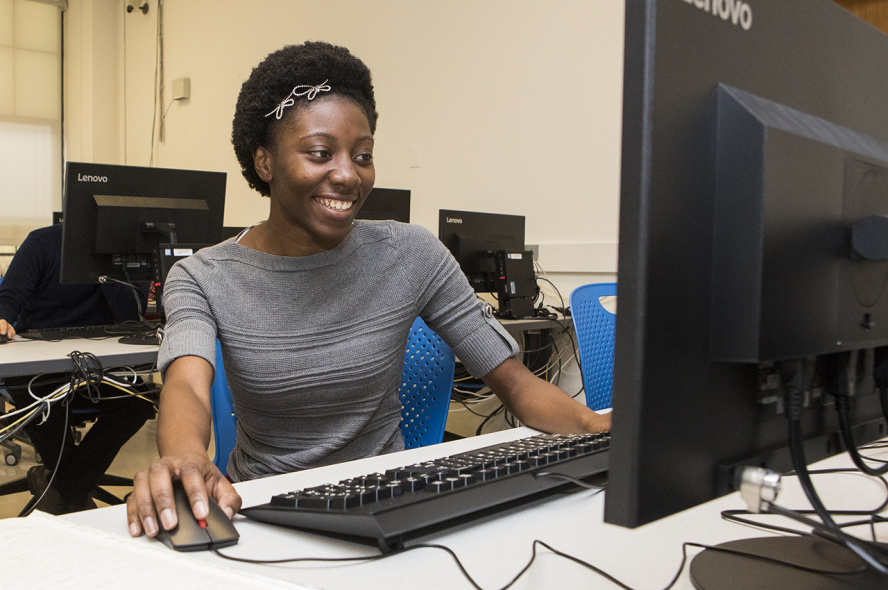Olaosebikan awarded for presentation

The Institute of Electrical and Electronics Engineers recently hosted the IEEE Conference on Virtual Reality and 3D User Interfaces (IEEE VR). Taking place March 12 – 16, 2022, the online conference included talks and papers from pioneers in virtual, augmented, and mixed reality. Monsurat Olaosebikan, a PhD candidate in the Department of Computer Science at Tufts University, gave a talk regarding the use of tools in remote scientific collaboration. The Department of Computer Science is proud to announce that for her presentation, Olaosebikan won the prestigious Doctoral Consortium Best Presentation Award at IEEE VR.
Branding itself as “the premier international event for the presentation of research results in the broad areas of virtual, augmented, and mixed reality,” the IEEE VR Conference has welcomed pioneers of virtual reality for almost three decades. The event includes scientists, engineers, designers, and artists who are making significant contributions in this budding field. As part of the conference, a doctoral consortium consisting of 20 students close to finishing or having recently completed their doctoral degrees give 8-minute talks. These talks are then followed by discussions between the presenters and their mentors.
Olaosebikan’s presentation, “Designing Immersive Tools for Supporting Cognition in Remote Scientific Collaboration” examined how video-conferencing tools limit the cognitive practices that scientific collaborators take part in. By investigating how VR can support cognition in remote collaborative environments, Olaosebikan hypothesized that the lack of aids such as physical notebooks, whiteboards, and sticky notes, limited the ways in which collaborators could build trust and maintain motivation. Consequently, introducing VR replacements for these tools would help collaborators during synchronous video-conference meetings. This support can be provided through Embodied Notes, a tool designed to be used in such digital settings and a focus of Olaosebikan’s talk.
The Department of Computer Science congratulates Olaosebikan on her achievement and looks forward to her future work in this field!
Department:
Computer Science